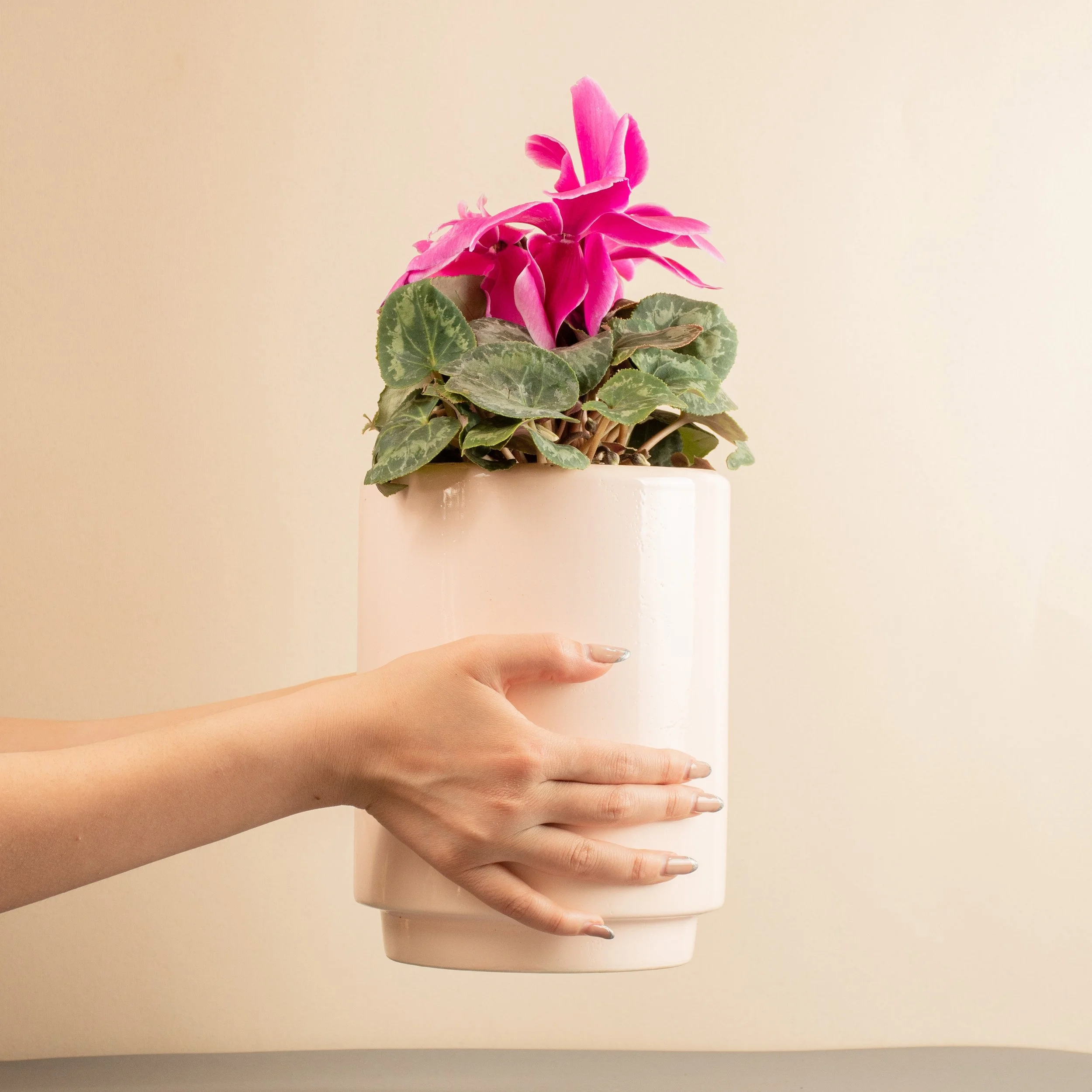How Can The Enneagram Be Used In Therapy?
Enneagram therapy is an exciting and innovative approach to personal development that can provide you with powerful insights into your psychological make-up, enabling you to identify your core strengths and weaknesses, gain greater self-awareness, and work through challenges more effectively. In therapy, it allows you to engage in growth beyond a psychiatric diagnosis. We love this strengths-based approach.
Exploring Enneagram Therapy as a Path to Personal Growth
In therapy, using the enneagram allows you to engage in holistic growth. Because there are no good types and no bad types, you and your therapist get to take a deep, honest look at what behaviors and habits are working for you. You also get to examine those that are no longer serving you.
The Power of Enneagram Therapy: Beyond Psychiatric Diagnosis
The enneagram is a powerful tool for personal growth and development. It can help you deepen your understanding of yourself, others, relationships, and interactions. There’s also no need to base your care around a psychiatric diagnosis. Diagnoses can be helpful sometimes, but they can also be pathologizing and negative. The enneagram sees you as a whole person.
Trauma-Informed Enneagram Therapy: A Framework for Healing
Unlike other personality systems, the enneagram is based on the core desire and core fear that informs your choices and behaviors. These core fears and desires are trauma-informed. This makes the enneagram an excellent framework to enhance therapy.
Enneagram Therapy and Its Compatibility with Various Modalities
Examining our core fears and desires is part of many different styles of therapy. You'll find it in cognitive behavioral work, psychodynamic work, couples work, and many other types of therapy. The enneagram is an excellent enhancement to those modalities. Let's explore what that might look like.
Enneagram Therapy in Harmony with Cognitive Behavioral Therapy (CBT)
Enneagram therapy and cognitive behavioral work seamlessly blend together. This provides a comprehensive approach to personal growth and healing. In CBT, the focus is on recognizing and changing unhelpful thoughts and behaviors. When combined with the enneagram, you gain a deeper understanding of the hidden fears and desires that drive these patterns. This holistic approach empowers you to modify behaviors AND address the underlying causes. Enneagram therapy and CBT can be especially effective in helping clients manage anxiety and depression. It does this by shedding light on the core motivations behind these emotions and offering strategies for lasting change.
Enneagram Therapy and Its Role in Psychodynamic Therapy
Psychodynamic therapy explores the unconscious mind and how past experiences shape present behaviors. The Enneagram complements psychodynamic therapy by offering a framework to understand how core desires are shaped by experience. In other words, how does trauma shape our desires? Psychodynamic therapists can use the enneagram to assist clients in uncovering and processing deep-seated issues. It can help them connect the dots between their past and current challenges. This combined approach nurtures profound self-awareness and empowers clients to make meaningful changes in their lives. By addressing the emotional and psychological roots of their issues, transformation is possible.
Enhancing Relationships through Enneagram in Couples Therapy
Couples therapy focuses on communication, conflicts, and how relationships work. The enneagram adds another layer by helping couples grasp their core motivations and fears. By identifying enneagram types, couples gain insights into why they react to each other in specific ways. This newfound awareness promotes empathy and compassion, enabling partners to communicate better. It also helps them navigate conflicts with a deeper understanding of each other. Enneagram couples therapy serves to strengthen bonds and foster healthier, more fulfilling relationships.
We pair the Enneagram with Gottman couples' therapy techniques. We've seen incredible results. The Enneagram enhances understanding and compassion, and Gottman provides concrete tools for change. It's an unbeatable combination.
Understanding the Nine Enneagram Types in Therapy
You can use the enneagram alongside a mental health diagnosis or independently. That's why we love it: it's a versatile and strengths-oriented approach. But first, what is the enneagram? The following is a brief summary of the nine enneagram types and what core desires and fears they may be exploring in therapy. We feel it’s best not to take any online tests, but to read about the types and see which resonate the loudest.
Type 1 - The Reformer: Overcoming Self-Criticism through Therapy
Type 1 individuals are known for their meticulous nature and ability to envision the ideal version of everything around them. Their journey in therapy often involves addressing feelings of anger, self-criticism, and a tendency toward black-and-white thinking. They may also explore their deep-seated worries about being perceived as bad or corrupt, seeking to find balance and self-acceptance.
Type 2 - The Helper: Finding Self-Worth and Balance in Therapy
Type 2 personalities are natural caregivers who thrive on being helpful and needed. In the therapeutic process, Twos may work on recognizing and addressing their own needs and desires, rather than diminishing them for the sake of others. They might confront fears of not being lovable and seek healthier ways to build relationships that aren't solely based on dependence. Additionally, they may work on preventing resentment that can arise when they've been caretaking without receiving in return.
Type 3 - The Achiever: Cultivating Authenticity and Emotional Connection through Therapy
Type 3 individuals are highly achievement-oriented and adaptable. In therapy, Threes might explore separating their sense of self-worth from their achievements. They may embark on a journey toward developing a more authentic relationship with their emotions and with others. Learning to allow themselves moments of rest and building deeper emotional intimacy are also key areas of focus.
Type 4 - The Individualist: Navigating Depression and Embracing Uniqueness in Therapy
Type 4s are often seen as sensitive, creative, and highly individualistic individuals. In therapy, Fours may address issues such as depression, the feeling of being an outsider, and managing intense emotional fluctuations. They could work on shedding the belief that they are "too much" and learn how to navigate a world that may not always appreciate their depth and uniqueness while maintaining their core values and identity.
Type 5 - The Investigator: Overcoming Emotional Barriers and Fear of Scarcity through Therapy
Type 5s have inquisitive minds that are constantly seeking knowledge. In therapy, Fives might explore strategies to connect more with others, opening up in ways that feel safe to them. They could work on understanding and engaging with their emotional side, finding ways to interact with the world beyond their expertise, and confronting their fear of scarcity.
Type 6 - The Loyalist: Managing Anxiety and Navigating Relationships in Therapy
Type 6 individuals place great importance on loyalty and commitment in relationships. In therapy, Sixes may address their pervasive anxiety, concerns related to societal issues, and the complexities of their relationships, both in personal and work settings. They may also explore their sometimes-conflicting feelings toward authority figures.
Type 7 - The Enthusiast: Developing Emotion Tolerance and Healthy Coping Strategies in Therapy
Type 7s are known for their enthusiasm and love for life's pleasures. In therapy, Sevens might work on identifying and managing uncomfortable emotions, learning how to avoid feeling trapped by commitments and routine, and cultivating healthier coping mechanisms. The goal is to shift from escapism and avoidance toward a more balanced and mindful approach to life's challenges.
Type 8 - The Challenger: Embracing Vulnerability and Mastering Conflict Resolution in Therapy
Type 8s are strong-willed and protective individuals who confront challenges head-on. In therapy, Eights might explore their fears of being controlled or manipulated, seeking ways to soften their approach when dealing with others who may not handle conflict as well. They may also delve into their caregiving and protective qualities, while learning to tolerate vulnerability in safe environments.
Type 9 - The Peacemaker: Cultivating Assertiveness and Self-Identity in Therapy
Type 9 individuals are dedicated to promoting peace and harmony. In therapy, Nines might address feelings of depression, focusing on recognizing and honoring their own needs over those of others. They may work on developing a stronger sense of self and acquiring the tools to establish and maintain boundaries while still maintaining connections. Ultimately, the aim is for Nines to become more assertive and self-confident in their lives.
Enneagram Therapy Tailored to Your Unique Self
As you can see, the enneagram can be powerful in therapeutic settinngs. It allows both the client and therapist to understand something deeper than what lies on the surface. The enneagram delves into your core values, beliefs, and fears. This helps therapists develop a more effective treatment plan tailored specifically around you. That's so much better than a one-size-fits-all approach based on a diagnosis. The enneagram is also trauma-informed, as our core fears and desires are shaped by our formative and traumatic experiences. Your therapist can address your growth points alongside your trauma for maximum healing.
Enneagram Therapy's Deep Dive into Core Values and Beliefs
One of the remarkable strengths of the enneagram is its ability to delve deep into an individual's core values and beliefs. Unlike many other personality systems, the enneagram focuses on the desires and fears that drive behavior. Through enneagram therapy, clients embark on a journey of self-discovery. People uncover the fundamental principles and beliefs that shape their decisions and actions. This deep dive allows therapists to provide care that resonates with each client's worldview. Enneagram therapy is therefore a highly personalized and effective experience. By addressing core values and beliefs, clients can make profound and lasting changes in their lives.
Personalized Enneagram Treatment Plans vs. One-Size-Fits-All Approaches
Enneagram therapy stands out for its personalized approach to treatment. Rather than using a one-size-fits-all model, enneagram therapists tailor their care to each person. This customization ensures that therapy is suited to address your core fears, desires, and challenges. Traditional therapy often uses standardized techniques that may not resonate with you. By embracing personalized care, clients receive therapy that aligns with their authentic selves. We know that when therapy resonates, it works. The enneagram enhances therapy's effectiveness, leading to more meaningful, lasting results.
Enneagram Therapy and Trauma-Informed Healing for Maximum Impact
Enneagram therapy's trauma-informed approach is a powerful tool for healing. Trauma often shapes an individual's core fears and desires, influencing every aspect of their life. The enneagram allows therapists to explore these deep-seated issues in an empathetic environment. By integrating enneagram with trauma-informed care, therapists can help you confront and process your traumatic experiences. The enneagram helps us understand how trauma creates patterns of behavior and thought. This approach maximizes the impact of therapy. It facilitates not only recovery from trauma but also personal growth and transformation. It empowers individuals to heal from their past and build a more resilient future.
Get Started with Enneagram Therapy in California
If you're interested in integrating the enneagram into therapy, schedule a free consultation! We'd love to see if we're a good fit.


















